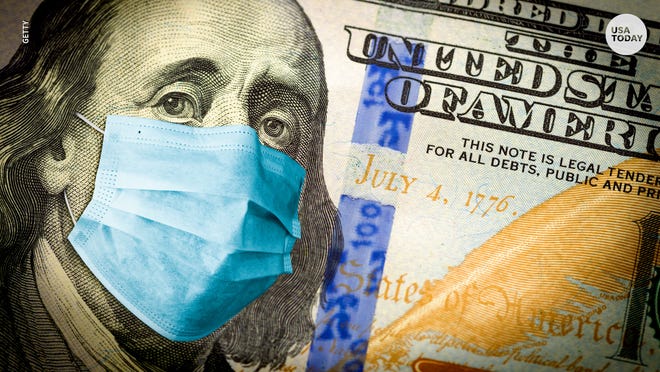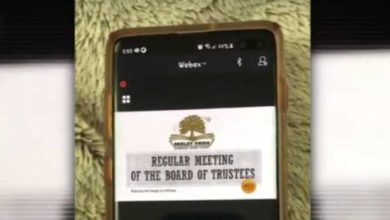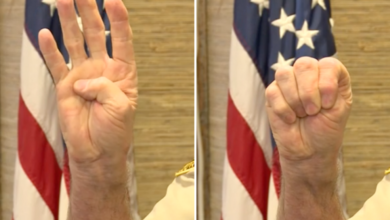
Some states have already started to distribute the extra $300 in federal unemployment aid this week after Congress passed a long-awaited COVID-19 relief package in December that will extend aid to millions of jobless Americans.
Some labor experts were concerned that President Donald Trump’s delay in signing the $900 billion rescue bill into law would mean that recipients would only get 10 weeks of the bonus benefits instead of 11 weeks. About 14 million people faced a lapse in their regular unemployment checks -- averaging about $400 a week -- at the end of December.
Some state unemployment agencies, however, avoided a delay in payments and have started sending out the $300 bonus for the week ended Jan. 2 or 3.
Here's what you should know:

Which jobless aid was extended?
The rescue package extended benefits for two critical unemployment programs. The first is Pandemic Unemployment Assistance (PUA), a program created to provide jobless benefits to gig workers and others typically not eligible.
The second is Pandemic Emergency Unemployment Compensation, which extended the typical 26 weeks of state benefits by an extra 13 weeks under the CARES Act passed in March.
Coronavirus lawsuits:COVID-19 sparks more than 1,000 workplace-related lawsuits in 2020 as employees complain about safety, wages
Base pay:Minimum wage set to rise in 20 states, 32 localities as growing number adopt $15 an hour
Both programs will now last at least an additional 11 weeks, from Dec. 27 through March 14, which means the 39-week benefit limit for PEUC has been increased to 50 weeks. Those receiving unemployment under PUA or PEUC on March 14 who haven’t exhausted their 50 weeks can continue to claim benefits until April 5.
Some states may take longer to reinstate PUA and PEUC but recipients should still get their money retroactively, experts say.
When will I get the $300 bonus?
How long it will take for jobless workers to receive the funds will be left to state unemployment departments. The additional $300 per week will start reaching workers by mid-January in most states, experts estimate.
Which states have issued the $300 boost?
Arizona, California, New York, Rhode Island and Tennessee are among the first states to begin paying a $300 boost this week, CNBC reported. Connecticut and Washington state aim to disburse the supplement beginning in mid-January, the report said.
California started paying the supplement only to some benefit recipients.
Maine, Montana, South Carolina, Vermont and Washington, among other states, said they'll begin issuing the bonus next week.
How long will the bonus last?
Jobless Americans will receive an extra $300 per week in federal unemployment aid for 11 weeks, through March 14.
Who qualifies for the $300 bonus?
All jobless workers who qualify for unemployment may receive the $300 for 11 weeks.
Will the $300 bonus be retroactive?
Any delayed payments will be paid retroactively to Dec. 27. The federal supplement isn't retroactive to September when a prior $300 benefit was cut off.
What if I earn wages and I'm a contractor?
Some workers with mixed earnings from wage and independent contractor work would receive an additional federal benefit of $100 a week through Mixed Earner Unemployment Compensation, or MEUC.
Many independent contractors and self-employed workers may have been receiving smaller unemployment checks, experts say, since their payments were based on wages from their W-2 tax forms that didn't include their self-employment income, which could be higher.
The bonus would be on top of the $300-per-week supplement and would last until mid-March.
States have to opt in to this program. New York, Florida, Minnesota and Illinois have signaled they plan to provide the aid, according to CNBC.
Is there a new verification process for PUA applications?
Jobless Americans who were receiving PUA benefits must verify their eligibility for the program this year.
Under an anti-fraud provision in the relief package, those currently getting PUA benefits will have 90 days to submit documents proving their continuing eligibility for the program. Those that don’t could be at risk of having to pay back any funds they receive after the bill’s enactment in December.
It’s unclear what documentation will be sufficient to satisfy the requirement, experts say.
People who apply for PUA for the first time starting Jan. 31 will have 21 days to submit their verification documents, according to CNBC.
Source link








